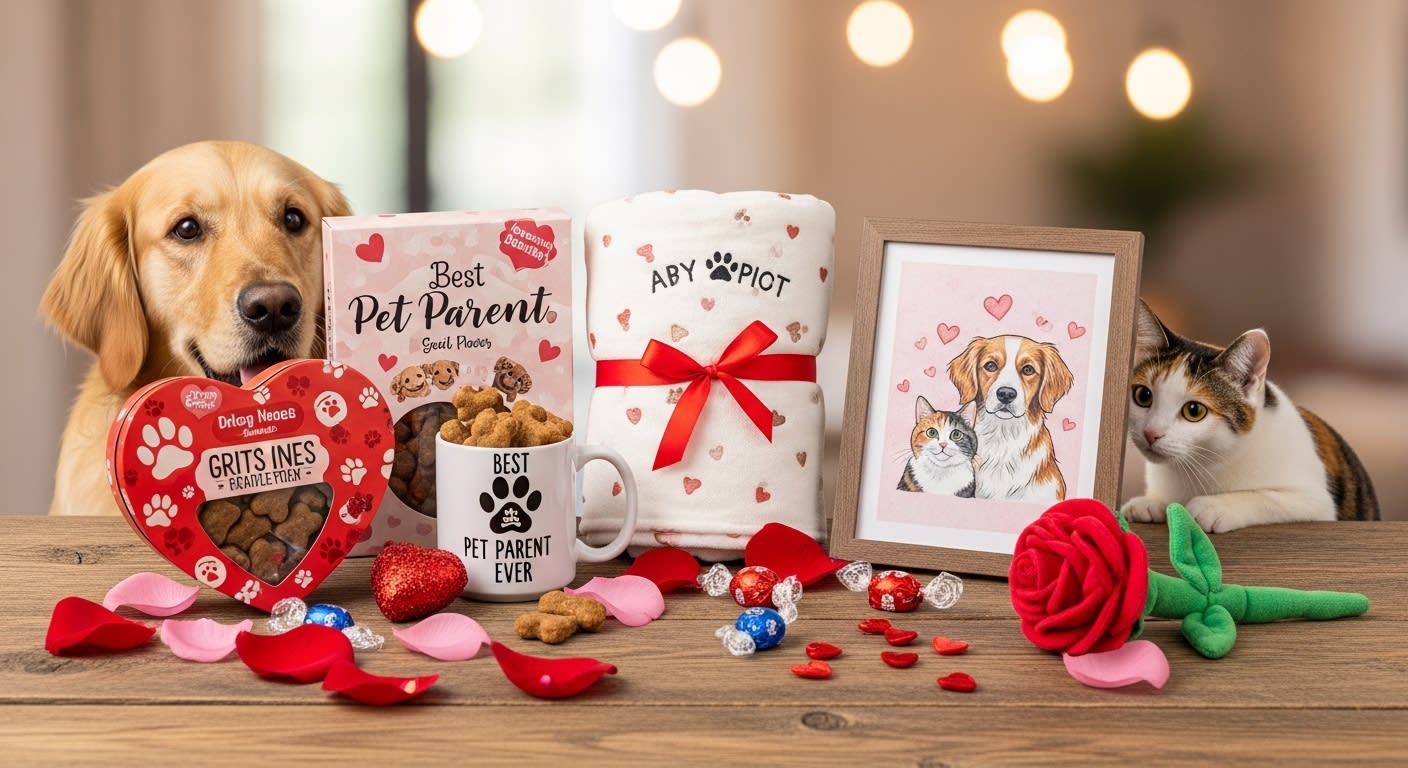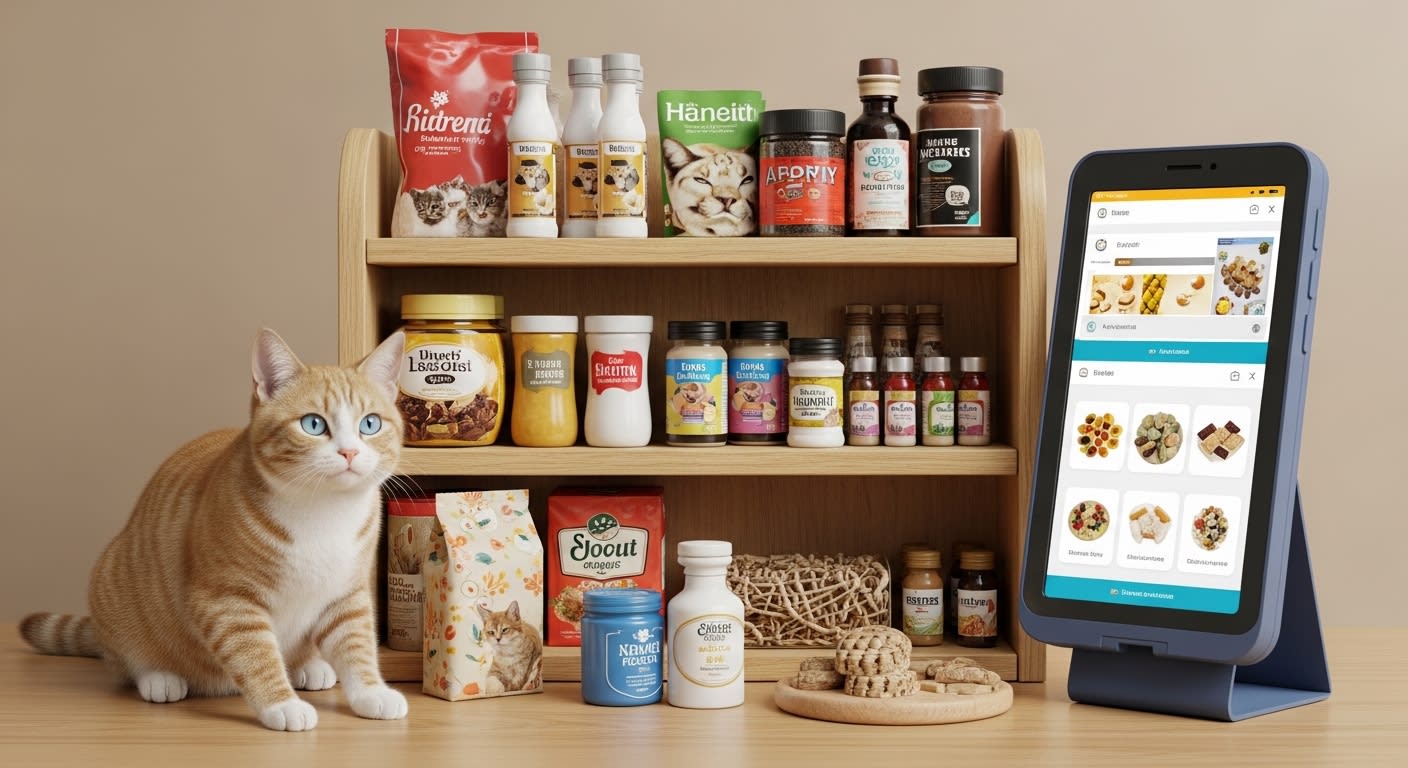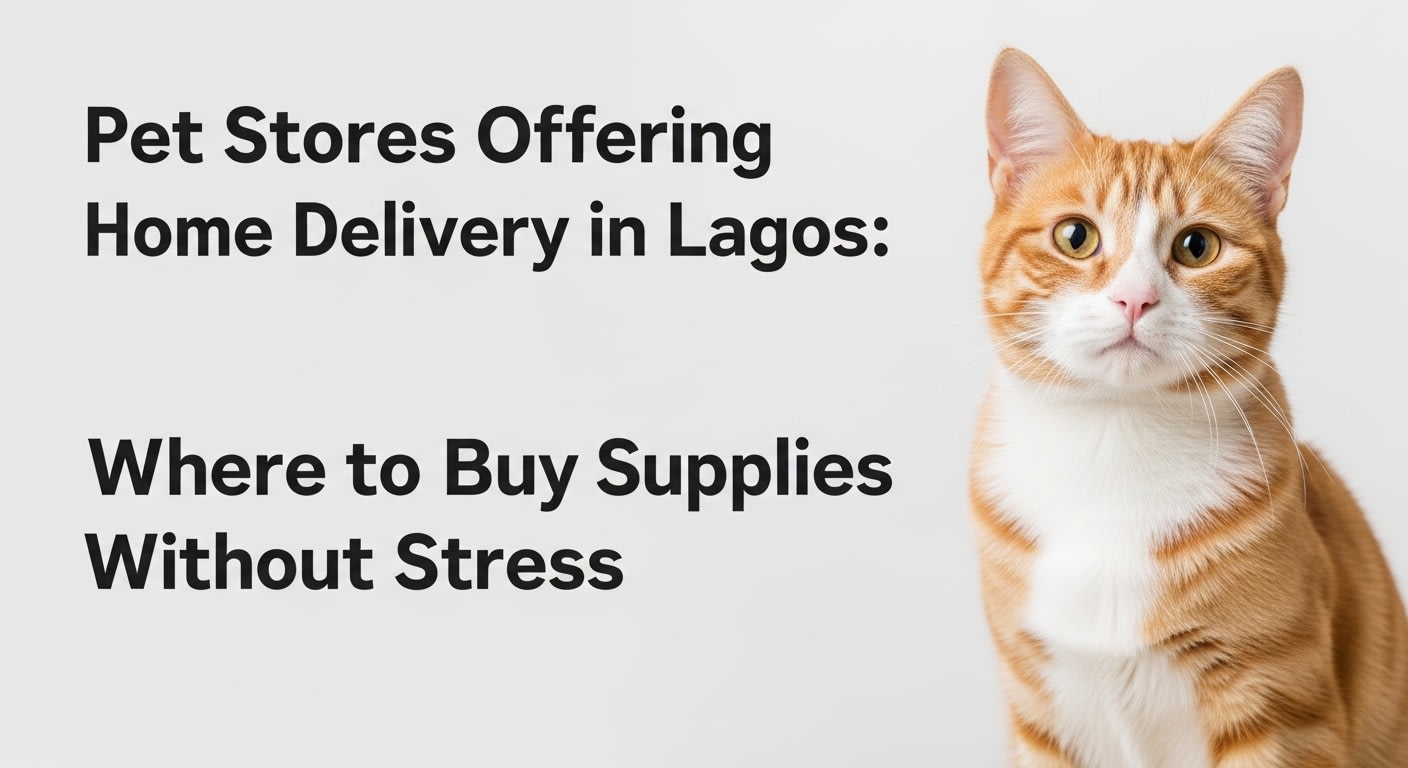Pet Health & Veterinary Care
Best Cat Breeds For First Time Pet Owners In Nigeria
Choosing the best cat breeds for first-time owners is an exciting yet important decision that sets the foundation for a joyful companionship. As the love for cats continues to grow among Nigerians, many new pet parents are discovering how adaptable, affectionate, and low-maintenance these feline companions can be. Mygotovet understands the excitement and the challenges that come with welcoming your first pet. That’s why we’ve compiled this comprehensive guide to help you choose a breed that fits perfectly with Nigeria’s warm climate, your lifestyle, and your personality. Whether you live in bustling Lagos or serene Jos, selecting the right cat ensures a smooth start to your pet journey.
Understanding the Nigerian Climate and Cat Ownership
Nigeria’s climate, hot, humid, and often unpredictable, can greatly influence your cat’s comfort and health. Therefore, first-time owners must prioritize breeds that thrive in warmth and have short, easy-to-maintain coats. While some may still hold onto outdated myths about cats, modern Nigerian households are increasingly embracing them as loyal, clean, and affectionate pets. The best cat breeds for first-time owners are those that combine adaptability with friendliness, ensuring they remain playful, affectionate, and low-stress companions.
Best Cat Breeds for First Time Pet Owners in Nigeria
The Adaptive Local Star: Domestic Shorthair (DSH)
The Domestic Shorthair (DSH) is the true Nigerian cat hero. Often called the “moggy,” this mixed-breed cat is known for its incredible adaptability and natural resilience. With a short coat that makes grooming almost effortless, the DSH thrives in Nigeria’s warm climate. These cats come in many colors and patterns, and because of their diverse genetics, they are generally healthier and hardier than purebreds.
DSHs are affectionate without being overly demanding, making them perfect for busy urban dwellers. When selecting a DSH, choose one that is curious, calm, and comfortable with human interaction.
RECOMMENDED:
Prepare Your Pet For A Vet Visit In Nigeria [2025]
Common Pet Health Problems In Nigeria And How To Prevent Them
Pet Allergies: Causes, Symptoms, Treatment & Prevention
Top Purebred Cats Suited to Nigeria’s Climate
If you’re interested in a specific breed, several purebred cats also do well in Nigeria’s tropical environment. However, it’s essential to select short-haired, sociable breeds that can handle the heat.
American Shorthair
The American Shorthair is known for its balanced temperament and easy-going personality. These cats are playful yet calm, making them excellent companions for individuals or families. With their short, dense coat, they require little grooming, just weekly brushing.
Oriental Shorthair
Graceful, intelligent, and social, the Oriental Shorthair is an excellent choice for warm climates. Their sleek, thin coat allows them to stay cool while their affectionate nature makes them ideal for owners seeking companionship. They enjoy human interaction and thrive in households with other pets.
Siamese
Known for their striking blue eyes and talkative personalities, Siamese cats are both charming and intelligent. Originating from Thailand, they are naturally adapted to hot weather. Their short, glossy coats are easy to maintain, and they form deep emotional bonds with their owners.
Exotic Shorthair
Often referred to as the “lazy man’s Persian,” the Exotic Shorthair offers the same sweet temperament as the Persian but with a shorter, low-maintenance coat. They are affectionate lap cats that adapt well to family environments.
Abyssinian
The Abyssinian is athletic, playful, and intelligent. Their short coat makes them ideal for Nigeria’s tropical climate. These cats are highly interactive and love engaging with their owners, providing both companionship and entertainment.
Larger and Long-Haired Breeds to Consider Carefully
While most first-time owners prefer short-haired cats, some long-haired breeds are irresistible. However, they require more attention due to Nigeria’s heat.
Maine Coon
Nicknamed the “gentle giant,” the Maine Coon is known for its affectionate nature and adaptability. Despite their long coat, they can live comfortably in air-conditioned homes. However, regular grooming, at least two to three times a week, is necessary to prevent matting and overheating.
Manx
The Manx is tailless or has a short stub, making it easily recognizable. They are loyal, playful, and friendly. With their short coat, grooming is easy, requiring only a weekly brush.
Essential Cat Care and Maintenance in the Nigerian Climate
Regardless of breed, proper care determines your cat’s health and happiness. Nigerian pet owners must pay special attention to hydration, hygiene, and parasite control.
Hydration and Cooling
High temperatures can cause dehydration and heat stress. Always provide clean, cool water and shaded areas for your cat. Hairless breeds like the Sphynx need protection from direct sunlight to prevent sunburn. Watch for signs of heat exhaustion, such as heavy panting or lethargy.
Veterinary Care and Parasite Prevention
Routine veterinary visits are non-negotiable. Mygotovet emphasizes preventive care, regular checkups, deworming, and vaccinations protect your cat from common diseases like feline panleukopenia. In Nigeria, a basic vet consultation costs around ₦6,000–₦14,000, while full vaccination schedules can range from ₦15,000–₦30,000.
Given Nigeria’s humid environment, fleas, ticks, and worms are widespread. Regular deworming (₦3,000–₦8,000 per treatment) and flea control prevent infestations that could affect both your cat and family.
Creating a Supportive Home
New owners should prepare for basic expenses such as food, litter, and carriers. Affordable substitutes like sawdust or sand can replace commercial litter. Adoption centers and clinics such as those partnered with Mygotovet often provide health-checked and vaccinated cats for first-time owners.
Building a Bond with Your Cat
Cats are social creatures that require love, play, and mental stimulation. Engage them with toys, scratching posts, and daily affection. Building trust takes time but rewards you with a loyal and affectionate companion. Behavioral enrichment, like playtime and structured routines, keeps your cat active and happy.
Common Health Concerns in Nigeria
Due to Nigeria’s tropical conditions, cats are at risk of parasitic infections and heat stress. Regular grooming, clean surroundings, and preventive medication are your best defenses. Watch for excessive scratching, fur loss, or appetite changes, these are early signs that your cat may need medical attention.
Choosing Between Local and Purebred Cats
While imported purebred cats are popular, adopting a Domestic Shorthair or locally bred cat is often the best choice. These cats are resilient, heat-tolerant, and require less maintenance.
Finding the Perfect Cat for Nigerian Lifestyles
Selecting the best cat breeds for first-time owners means finding a balance between personality, adaptability, and climate tolerance. Breeds like the Domestic Shorthair, American Shorthair, and Oriental Shorthair combine charm, intelligence, and resilience, making them ideal for Nigerian homes. With proper care, hydration, and regular vet checkups, your cat can enjoy a long, happy life beside you.
Mygotovet is committed to helping you every step of the way, from choosing the right breed to providing expert veterinary advice. Ready to find your perfect feline friend? Book a consultation with a Mygotovet veterinarian today or Find a Vet among our certified cat vets or simply signup to Talk to a Vet and start your journey to responsible, rewarding cat ownership.
Frequently Asked Questions on Best Cat Breeds for First Time Pet Owners
1. What are the best cat breeds for first-time owners in Nigeria?
The best cat breeds for first-time owners in Nigeria include the Domestic Shorthair, American Shorthair, Oriental Shorthair, Siamese, and Exotic Shorthair. These cats are friendly, low-maintenance, and well-suited to Nigeria’s warm climate.
2. Which cat breed is easiest to care for in Nigeria’s hot weather?
The Domestic Shorthair is the easiest to care for in Nigeria because of its short coat, adaptability, and resilience to heat. It requires minimal grooming and thrives in tropical conditions.3. Are long-haired cats suitable for Nigeria’s climate?
Long-haired breeds like the Maine Coon can live in Nigeria, but they need regular grooming and a cool environment. Air conditioning and frequent brushing help prevent overheating and matting.4. How much does it cost to own a cat in Nigeria?
Owning a cat in Nigeria costs approximately ₦6,000–₦14,000 for vet consultations, ₦15,000–₦30,000 for vaccinations, and ₦3,000–₦8,000 for deworming. Additional costs include food, litter, and accessories.5. How can I keep my cat cool in Nigeria’s hot climate?
Keep your cat cool by providing clean water, shaded resting areas, and proper ventilation. Avoid direct sunlight during the day, and ensure your home has good airflow or fans to reduce heat stress.6. Where can I adopt or buy cats in Nigeria?
You can adopt or buy cats through reputable veterinary clinics and shelters such as Mygotovet, which connects potential pet owners with vaccinated, health-checked cats suited to local conditions.7. How often should cats in Nigeria visit the vet?
Cats should visit the vet at least once or twice a year for vaccinations, deworming, and general health checks. However, kittens and newly adopted cats may need more frequent visits for initial care.8. Can I keep an indoor-only cat in Nigeria?
Yes, you can. In fact, keeping cats indoors helps protect them from parasites, traffic, and infectious diseases common in outdoor environments. Ensure your indoor cat gets enough stimulation through toys and playtime.9. What food should I feed my cat in Nigeria?
Feed your cat a balanced diet consisting of protein-rich foods like chicken or fish, combined with quality commercial cat food. Avoid feeding spicy or seasoned human meals, as they can upset your cat’s stomach.10. How do I know if my cat is overheating?
Watch for signs like excessive panting, lethargy, drooling, or rapid breathing. If these symptoms appear, move your cat to a cooler area, offer water, and contact a vet immediately, such as the experts at Mygotovet.
Animal Health & Blogs

11 February 2026
0 likesValentine’s Day gifts for pet lovers in Nigeria aren’t just cute, they’re thoughtful, useful, and often necessary for vibrant pet health. Whether y ...
Read More
09 February 2026
0 likesAcross Nigeria, more pet owners are ditching stressful market runs and overpriced shops. Instead, they now rely on trusted online pet stores to buy ...
Read More
09 February 2026
0 likesIf you are looking for pet stores offering home delivery in Lagos, the simple answer is yes, you can now get trusted pet supplies delivered straigh ...
Read More